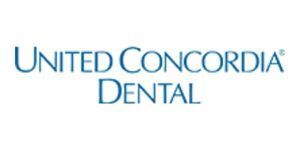Now Accepting New Medicare Patients • Same Day Appointments Available • Family, General, and Emergency Dentistry
Have you ever heard of bruxism? This issue—which is more commonly known as teeth grinding—is probably more common than you would expect. You see, many people have bruxism without realizing the problem, partially because many individuals clench their teeth unconsciously. As you may have guessed, this can cause quite a few problems since you might be clenching your teeth even while you’re sleeping.
There are a number of issues you may have to deal with if you have bruxism. For example, your enamel could wear down, which may leave you more vulnerable to tooth decay. Furthermore, clenching your teeth could lead to tension headaches or even migraines. Similarly, clenching your teeth could lead to chipped or fractured teeth. In fact, if bruxism is left untreated, over time you could actually lose all of your teeth.
Fortunately, there are a few symptoms you can watch out for. For instance, as a result of teeth grinding, you could be experiencing dull headaches, especially after you wake up. Also, your mouth and muscles may frequently feel sore. You may also experience pain in your ear, damage to the insides of your cheeks, and even indentations on your tongue.
The good news is, there are a number of things you can do to address bruxism, depending on the source of your habit. This may include reducing your stress levels, drinking more water, getting more sleep, and making a conscious effort to relax the facial muscles and jaw muscles throughout the day. Often, a custom night guard will help, and we are pleased to offer custom night guards for our patients experiencing bruxism.
If you’re interested in learning more about bruxism, please feel free to give Buckland Hills Dental in Manchester, Connecticut, at (860) 644-0099. Dr. Chi is happy to answer any questions you may have.
Insurances We Accept

Aetna

Ameritas

BlueCross BlueShield

Careington

Cigna

ConnectiCare

Delta Dental

Dentemax

Guardian

Humana

MetLife

Preferred Networks

Principal

The Standard

United Concordia Dental

United Healthcare
Request an Appointment
For more information or to schedule an appointment, call us at (860) 644-0099 or complete the form.
Contact Us
We will get back to you as soon as possible.
Please try again later.
What Happens After I Send My Message?
Our team will review your information.
A staff member will contact you as soon as possible.
We will work with you to schedule your appointment.
Our Contact Information
Address
We are located on the lower level of Buckland Hills Mall next to JCPenney.
Office Hours
- Monday
- -
- Tuesday
- -
- Wednesday
- -
- Thursday
- -
- Friday
- -
- Saturday
- -
- Sunday
- Closed

We are located on the lower level of the Buckland Hills Mall next to JCPenney.
Our Services
Quick Links
Office Hours
- Monday
- -
- Tuesday
- -
- Wednesday
- -
- Thursday
- -
- Friday
- -
- Saturday
- -
- Sunday
- Closed
Accepted Payments
Contact Us
Buckland Hills Dental
We are located on the lower level of Buckland Hills Mall next to JCPenney.
